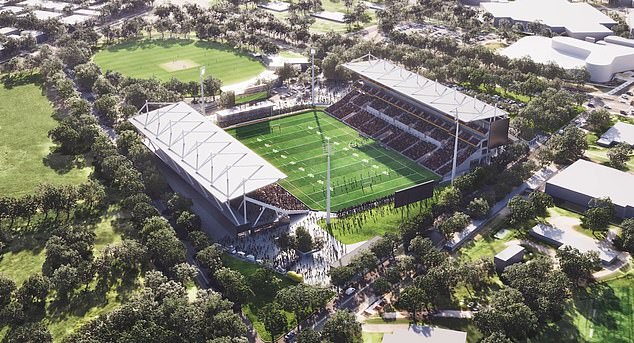An Aboriginal land claim over one of Sydney’s most iconic sporting stadiums remains unresolved after more than a decade, casting doubt on a $300 million redevelopment project.
Penrith Stadium, home of the Panthers NRL and NRLW teams, is the subject of a land claim by the Deerubbin Local Aboriginal Land Council (DLALC) that was first lodged in 2009.
The stadium upgrade has been in the works since 2022 and the government has gathered feedback from more than 3,000 fans, families and community members to incorporate into the design, which was released in January this year despite the pending land claim on the site.
In April this year, the New South Wales government formally rejected the claim, prompting DLALC to appeal the decision, it reported. The Saturday Telegraph.
The initial land claim in 2009 incorporated the whole of Penrith Park, including the BlueBet Stadium, Howell Oval and a football training facility.
The appeal filed on August 30 in the New South Wales Land and Environment Court covers only BlueBet Stadium and its playing field.
The lawsuit is reportedly set to be heard in November, and the $300 million renovation is still up for grabs.
The government rejected the claim earlier this year, arguing that the site had been used and occupied by local sports clubs for years and was also partially used by an essential public thoroughfare.
The $300 million redevelopment of Penrith Stadium could be thrown into disarray if an Aboriginal group’s land claim is approved (pictured is a digital rendering of the new site)
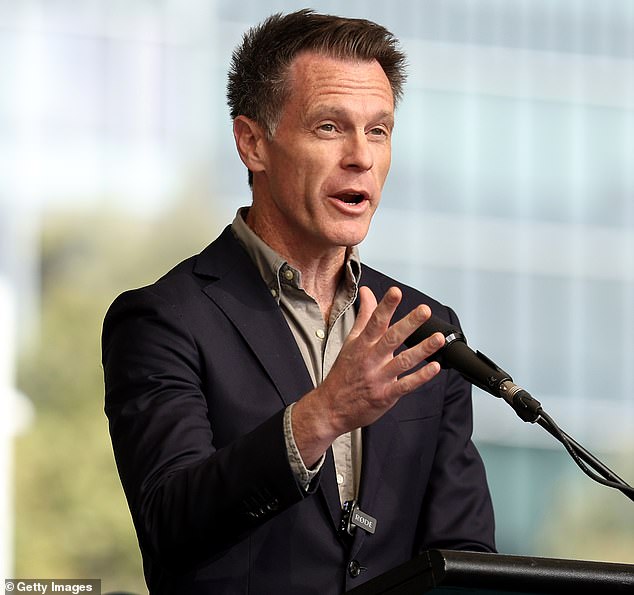
The Minns government is moving ahead with initial redevelopment work despite the unresolved claim.
Both are grounds protected under the Aboriginal Land Rights Act 1983 that would invalidate the claim to the iconic sports stadium.
To combat the appeal, the government will rely on an agreement between the Penrith Park Reserve Trust and Penrith Rugby League Club that was forged almost a year before DLALC filed its claim and remains in effect.
Lands and Property Minister Stephen Kamper has defended the government’s rejection of the Aboriginal land claim.
“The stadium and its surroundings have been used by a variety of local and professional sporting groups,” he said.
We strongly believe that this piece of community infrastructure should remain in public hands.
The New South Wales Aboriginal Land Council, which lodged the claim on behalf of DLALC, said the issue should have been resolved years ago so as not to interfere with any future redevelopment plans.
“Both NSWALC and Deerubbin LALC have clearly demonstrated their willingness not to delay these works by giving their consent for them to be carried out while the matter is under appeal,” the council said.
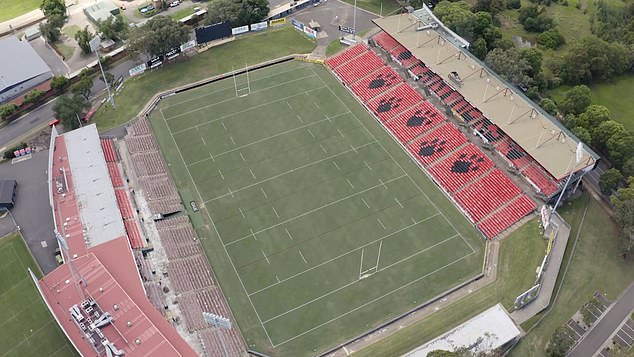
The stadium (pictured) is an icon of western Sydney and the redevelopment involved input from more than 3,000 local residents.
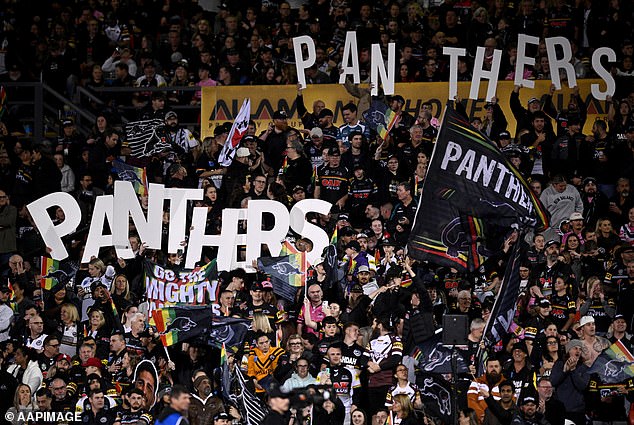
The New South Wales Aboriginal Land Council said it had attempted to negotiate with the government and said the claim should have been settled years ago (pictured: Panthers fans at BlueBet Stadium)
He said both sides attempted to negotiate with the government before lodging an appeal to the Land and Environment Court.
‘Both NSWALC and Deerubbin LALC remain hopeful that the matter can be resolved through conciliation negotiations, without the need for delay or uncertainty.’
According to the New South Wales Government, the Penrith Stadium redevelopment will be “a significant boost to western Sydney and will support local employment during its construction and operation”.
The redevelopment will include a new West Stand and a renovated East Stand, increasing the stadium’s capacity to 25,000.
The stands have been reconfigured to maximise premium viewing seating between the try lines, with more angled stands bringing fans closer to the action.
In another win for fans, more food and beverage outlets and services will reduce wait times on game days and improve the customer experience, as will new scoreboards, sound systems and improved lighting.
New player facilities, including four new changing rooms, will help increase female representation in rugby league and other sporting codes.
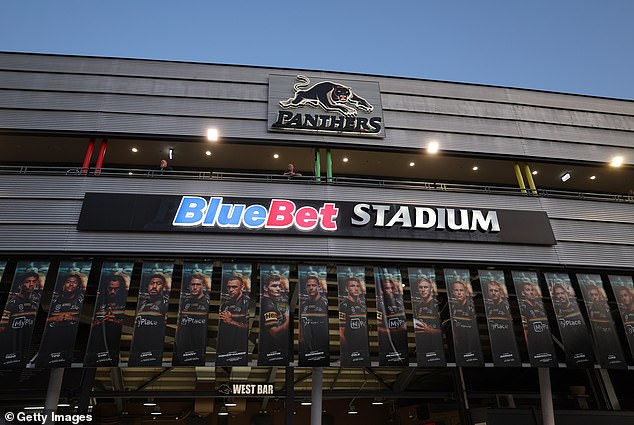
Penrith Stadium (pictured) is home to the Panthers NRL and NRLW teams.
The hills at the north and south ends of the pitch will be retained and the training ground to the west of the stadium will be redeveloped to create a stadium precinct with quality open spaces for outdoor entertainment, sporting and community events.
Deputy Premier and Minister for Western Sydney Prue Car said she was “delighted” to see the improved designs for Penrith Stadium.
“Thanks to community involvement, we are confident we are delivering improvements for fans whilst providing value for money for NSW taxpayers,” he said.
‘This is a very welcome upgrade to a stadium that has been much loved by the passionate Western Sydney community.
“I can’t wait to see the seats filled with fans roaring in to enjoy Panthers games in the upgraded stadium.”
To facilitate the redevelopment, the stadium is expected to close after the 2024 NRL season and reopen in 2026.


